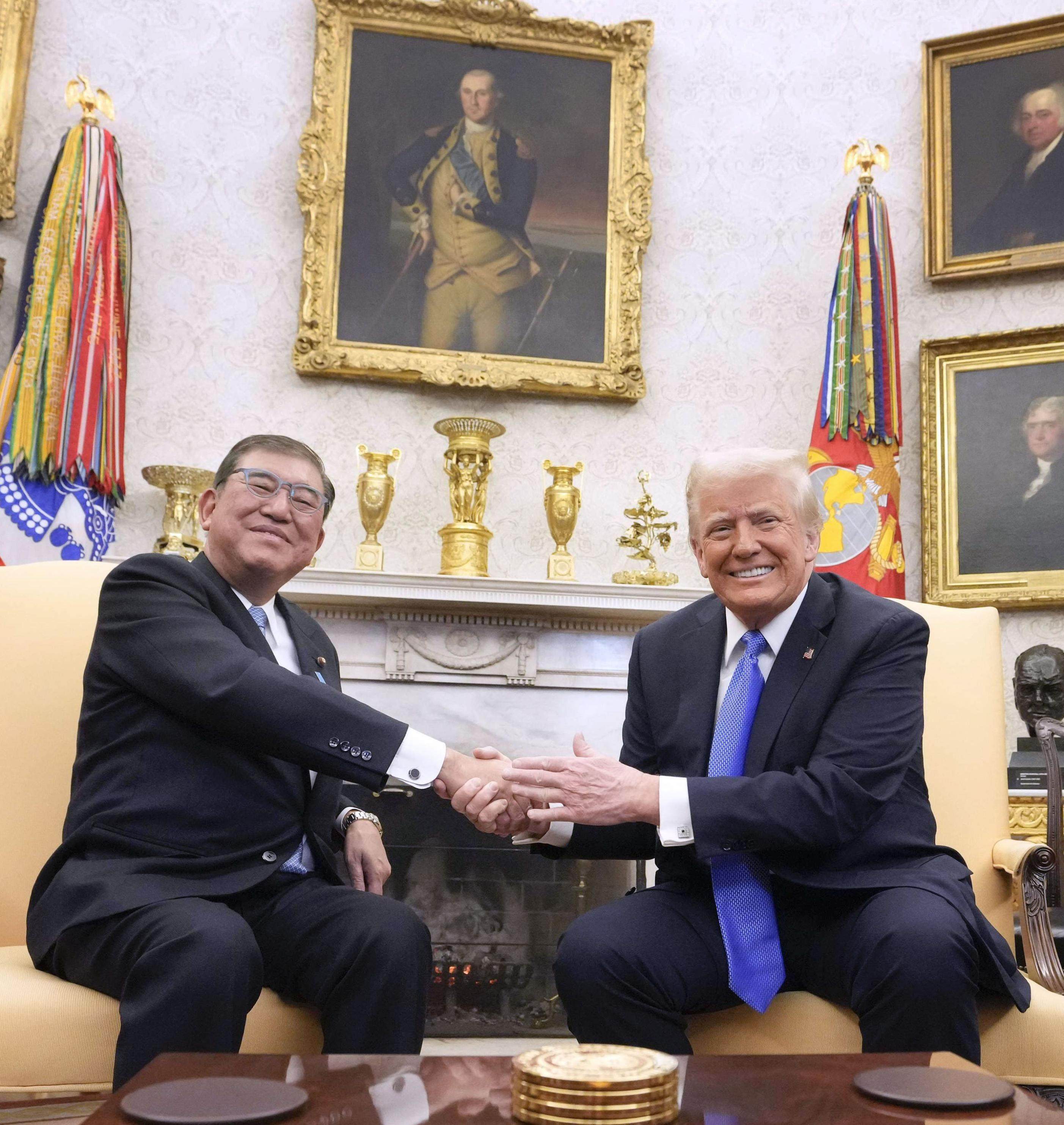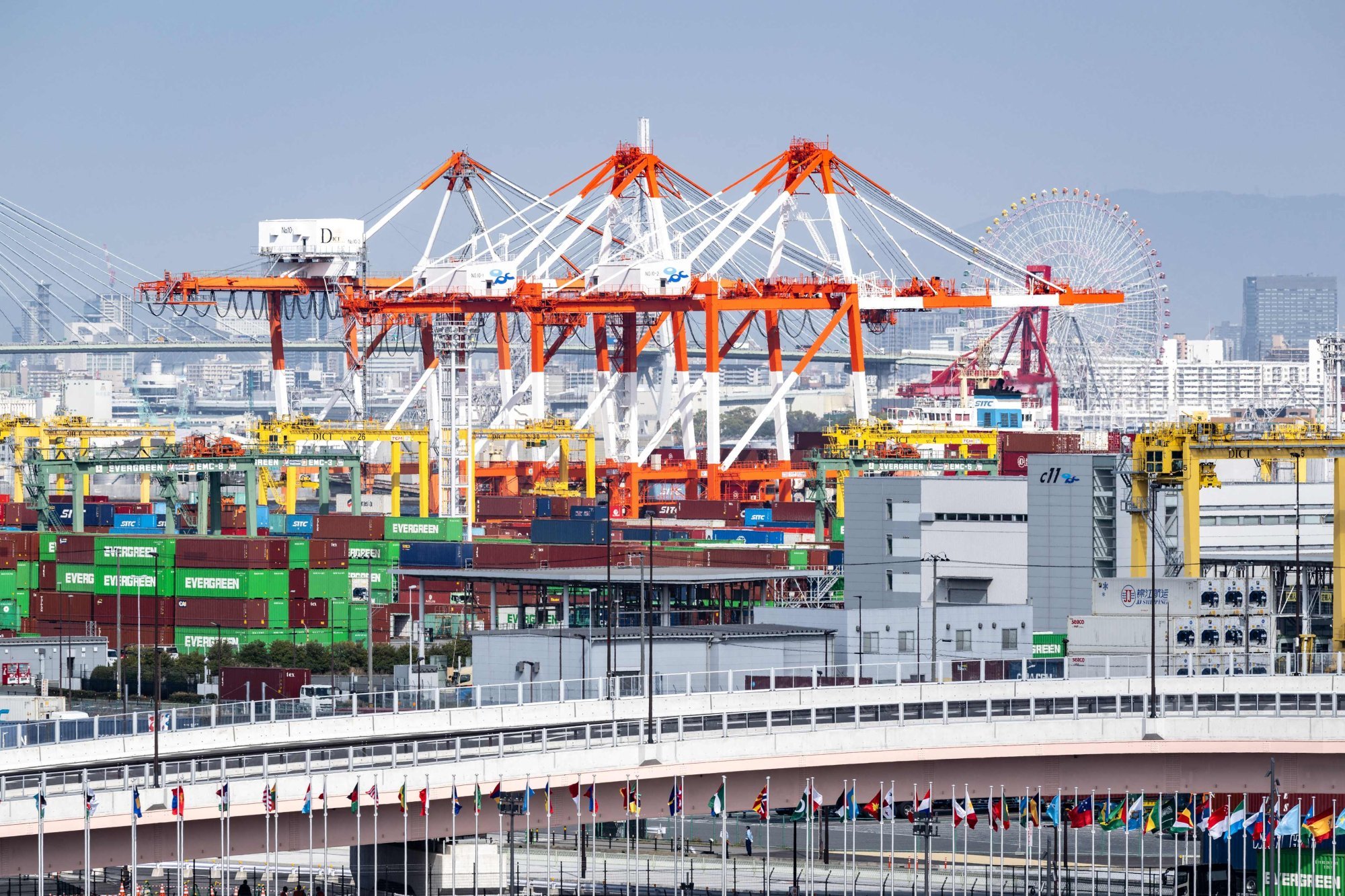Japan urged to reduce US reliance amid Trump uncertainty, and embrace Global South
Japanese business leaders are urging the country to diversify trade beyond the US to mitigate risks associated with over-reliance on one economy

The head of the influential Japan Association of Corporate Executives business lobby has urged the country and its companies to reduce their reliance on the US as their main trading partner and instead bolster supply chains with emerging and developing nations in the Global South.
While economists who spoke to This Week in Asia broadly agreed that Japanese firms need to diversify their markets and partnerships, they cautioned that no other market can match the size and significance of the US – even amid the disruptions caused by President Donald Trump’s trade policies.
In an interview with the Yomiuri newspaper published on Tuesday, association chairman Takeshi Niinami said it had become clear that the tariffs announced by Washington meant it was “no longer the same as it used to be, and other nations should not rely on it”.
As countries worldwide scrambled to reinforce their economies and forge new trade alliances, Japan “must act immediately to enhance its competitiveness with a sense of urgency,” Niinami said.
He added that the response from world markets to the on-again, off-again tariffs has reflected their chaotic implementation, increasing uncertainty in the global economy.
While some anticipate that the US may return to normality after Trump leaves office, Niinami noted that this was not guaranteed since Trump was elected by individuals who were angry because they believed that globalisation had cost them jobs, widened the gap between rich and poor, and exacerbated societal divisions.
“Japan must now revive its trade system,” Niinami said. “The public and private sectors must work together to build alliances with the emerging and developing countries known as the Global South, and rebuild supply chains.”
Additionally, he urged for revitalisation of domestic investment through deregulation and institutional reforms, warning that failure to take these steps will mean “Japan will fall behind the rest of the world”.
Martin Schulz, chief policy economist for Fujitsu’s Global Market Intelligence Unit, acknowledged the significant transformations in global trade but maintained that the US would not lose its relevance.
“The US cannot be replaced by the Global South,” he told This Week in Asia. “The US is, however, unquestionably changing the global trading system and the way in which trade is done regionally.
“Japan is one of the strongest and longest trade partners for the US and that is immensely important to Japan, but because of Washington’s new policies, Japan will have to become much closer to Asian markets and to develop flexible supply chains,” he said.

China is experiencing similar disruptions and is also looking to build closer relations in other parts of Asia or to develop previously under-utilised markets, he suggested, such as the nations of the Global South.
“Japan needs to shift its trade focus and networks, but that does not mean it will cut its ties with the US or look to replace it as a market,” he said. “In the future, I see a more multipolar trading world, whereas until now it has been more unipolar, and that means Japan has no choice but to focus more on other parts of Asia.”
Morinosuke Kawaguchi, an innovation expert and founder of Tokyo-based management and design consultancy Morinosuke Company Ltd., was even less optimistic about a pivot away from the US.
“It is not as easy as just saying ‘let’s shift to the Global South’,” he said. “Most of those nations’ growth has been linked to China, but China has peaked out and passed the point of rapid growth.”
Kawaguchi believes China’s demographic situation will hinder future growth, meaning that it will never be able to economically surpass the US, which benefits from inflows of talented young immigrants.
“It is true that Japan depended too much on US consumption in the past, but even if that is declining now, there is nowhere that can replace the US,” he said. “It is too radical an idea that the Global South could replace the US, so while it is a good idea for Japanese firms to look at the markets of those countries, the US will always be their backstop.”